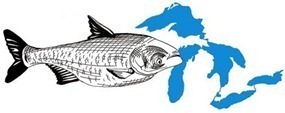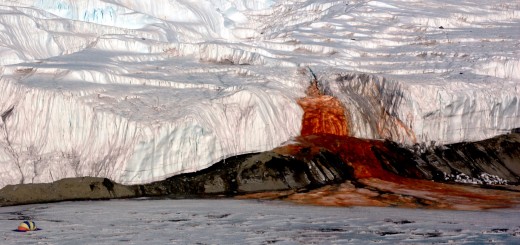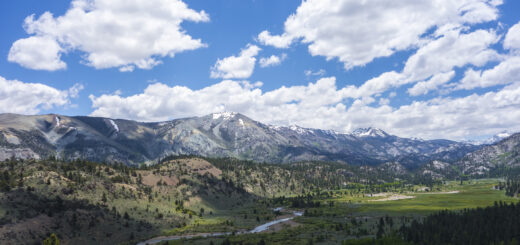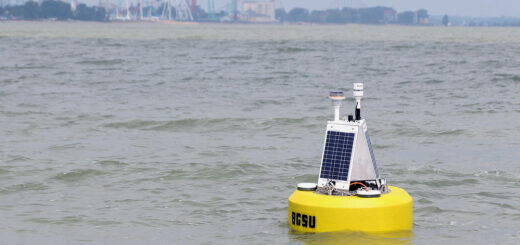Great Lakes ice disappearing rapidly
0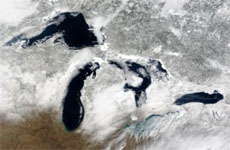 New research shows that the amount of ice covering the Great Lakes has declined on average by 71 percent over the past 40 years. Lake Ontario has lost the most during this time: it is down 88 percent over the last 40 years. On average about 40 percent of the lake’s surfaces freeze every winter; This winter, only about 5 percent of the surfaces froze.
New research shows that the amount of ice covering the Great Lakes has declined on average by 71 percent over the past 40 years. Lake Ontario has lost the most during this time: it is down 88 percent over the last 40 years. On average about 40 percent of the lake’s surfaces freeze every winter; This winter, only about 5 percent of the surfaces froze.
A loss of ice increases warming by altering surface color, so more heat is reflected back into the atmosphere. A decrease in ice also accelerates evaporation which can cause water levels to drop. Ice loss, warmer temperatures, and greater evaporation also affect the state of fisheries and ecosystem health, including the prevalence of harmful algal blooms.
Scientists attribute the loss of ice to global climate change, natural variability and regional weather patterns. To learn more about the Great Lakes, visit Lake Scientist’s section on extreme lakes: largest lakes.
Read more at MSNBC and The Detriot Free Press.




